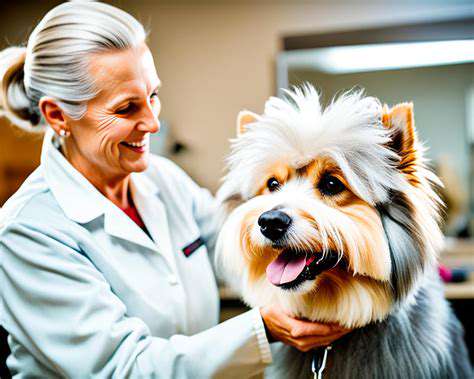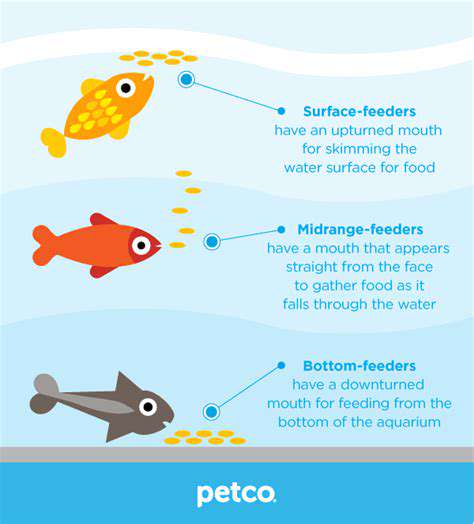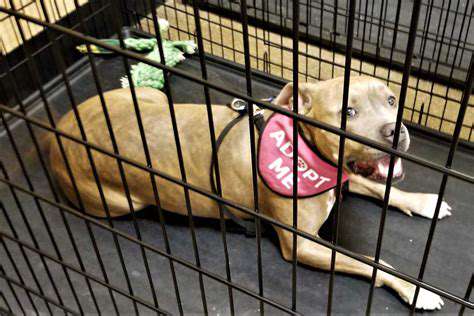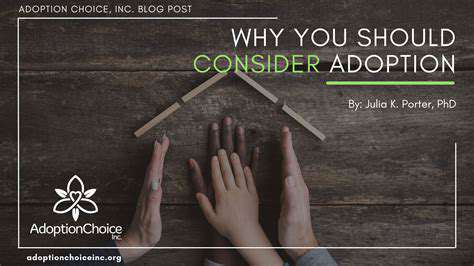How to Care for an Older Dog: Senior Needs

Monitoring Senior Dog Health: Regular Checkups
Senior dogs, much like senior humans, require more frequent and specialized veterinary care. Regular checkups are crucial for early detection of potential health issues, allowing for prompt treatment and potentially extending your beloved companion's lifespan and quality of life. These checkups should include a comprehensive physical examination, including vital signs like heart rate, respiration, and temperature. Veterinarians can also assess your senior dog's overall condition, looking for signs of arthritis, cognitive decline, or other age-related changes. Proactive health monitoring enables proactive intervention, potentially preventing more serious problems down the road.
During these visits, be prepared to discuss any changes you've observed in your dog's behavior or physical condition, no matter how small they seem. A consistent and detailed record of your senior dog's health history, including vaccination records, prior illnesses, and medications, is invaluable for the veterinarian to properly assess their current state. Keeping a detailed record of these aspects of your dog's life will help the vet make an accurate diagnosis. This information is crucial for understanding the progression of any potential health concerns and ensuring the best possible care for your senior dog.
Dietary Considerations for Senior Dogs
Senior dogs often have different nutritional needs compared to their younger counterparts. Their metabolism slows down, and their digestive systems may not function as efficiently. A tailored diet that includes high-quality protein sources and easily digestible ingredients is essential. This type of diet can help maintain muscle mass, support joint health, and promote overall well-being, especially crucial as senior dogs are often prone to arthritis and other age-related joint issues. Consulting with your veterinarian is key to determining the appropriate nutritional needs of your senior dog based on their specific health conditions and activity level.
Senior dog food often contains added nutrients such as glucosamine and chondroitin, which can support joint health. These added components can be very beneficial for the aging dog. Adjustments to the senior dog's diet may be necessary, based on any specific health concerns, including weight management or digestive issues.
Behavioral Changes and Cognitive Decline
As dogs age, they may experience changes in their behavior and cognitive function. Changes in appetite, sleeping patterns, or energy levels can be signs of underlying health issues. Pay close attention to any subtle shifts in your senior dog's personality, as these can indicate potential cognitive decline, a common issue in senior dogs. Senior dog dementia, sometimes called canine cognitive dysfunction, can impact a dog's memory, ability to recognize familiar people and places, and overall behavior.
If you notice changes in your senior dog's behavior, such as disorientation, house soiling, or changes in their interaction with family members, consulting a veterinarian is essential. They can assess the situation, rule out any medical causes, and offer guidance on managing these behavioral changes.
Early detection of these changes is crucial to help manage their effects and provide a better quality of life for your senior dog. Be sure to communicate any behavioral changes that you have observed to your veterinarian so that they can help you make a diagnosis.

Read more about How to Care for an Older Dog: Senior Needs
Hot Recommendations
- Review: [Specific Brand] Small Animal Cage
- Why Rescuing Pets Saves Lives
- Best Pet First Aid Kits [What to Include]
- How to Help Stray Animals in Your Community
- Guide to Adopting a Pet When You Have Kids
- Top Reptile Heat Lamps
- Heartwarming Rescue Stories That Will Inspire You
- Review: [Specific Brand] Bird Cage
- Best Aquarium Filters [2025 Review]
- Review: [Specific Brand] Smart Litter Box







![A Day in the Life of a Farm Pet [Story]](/static/images/33/2025-07/ANighttimeRoutineandRestfulSlumber.jpg)


![The Funniest Thing My Dog Did Today [Pet Story]](/static/images/33/2025-08/LessonsLearned28andSausage-Related29.jpg)
